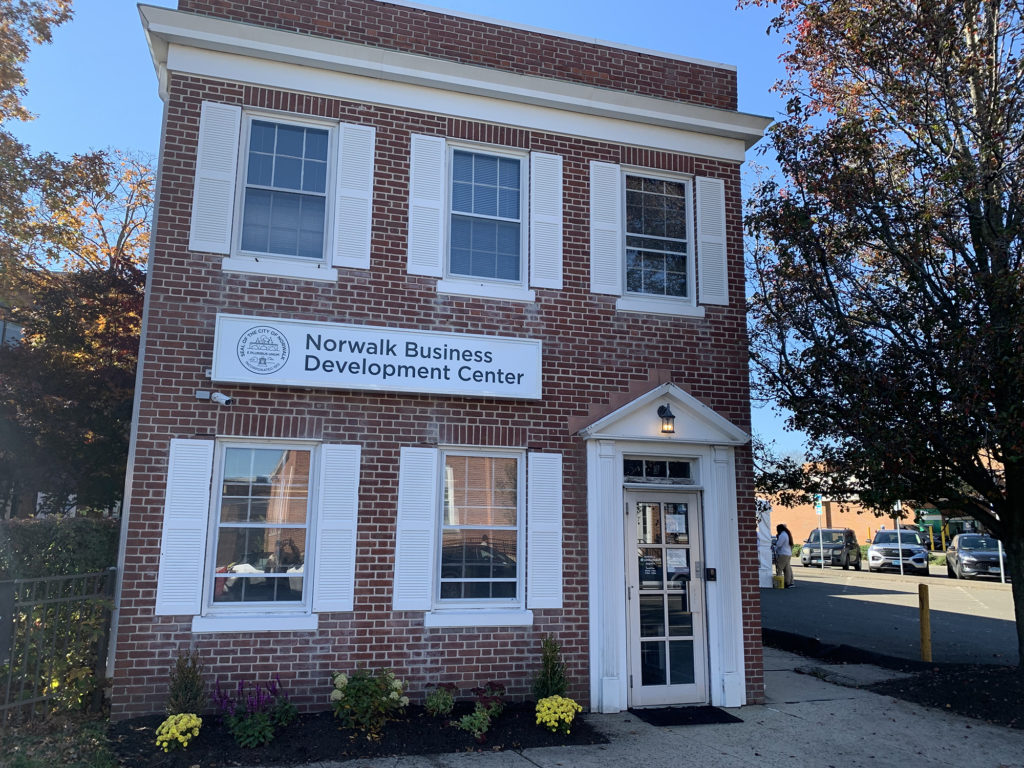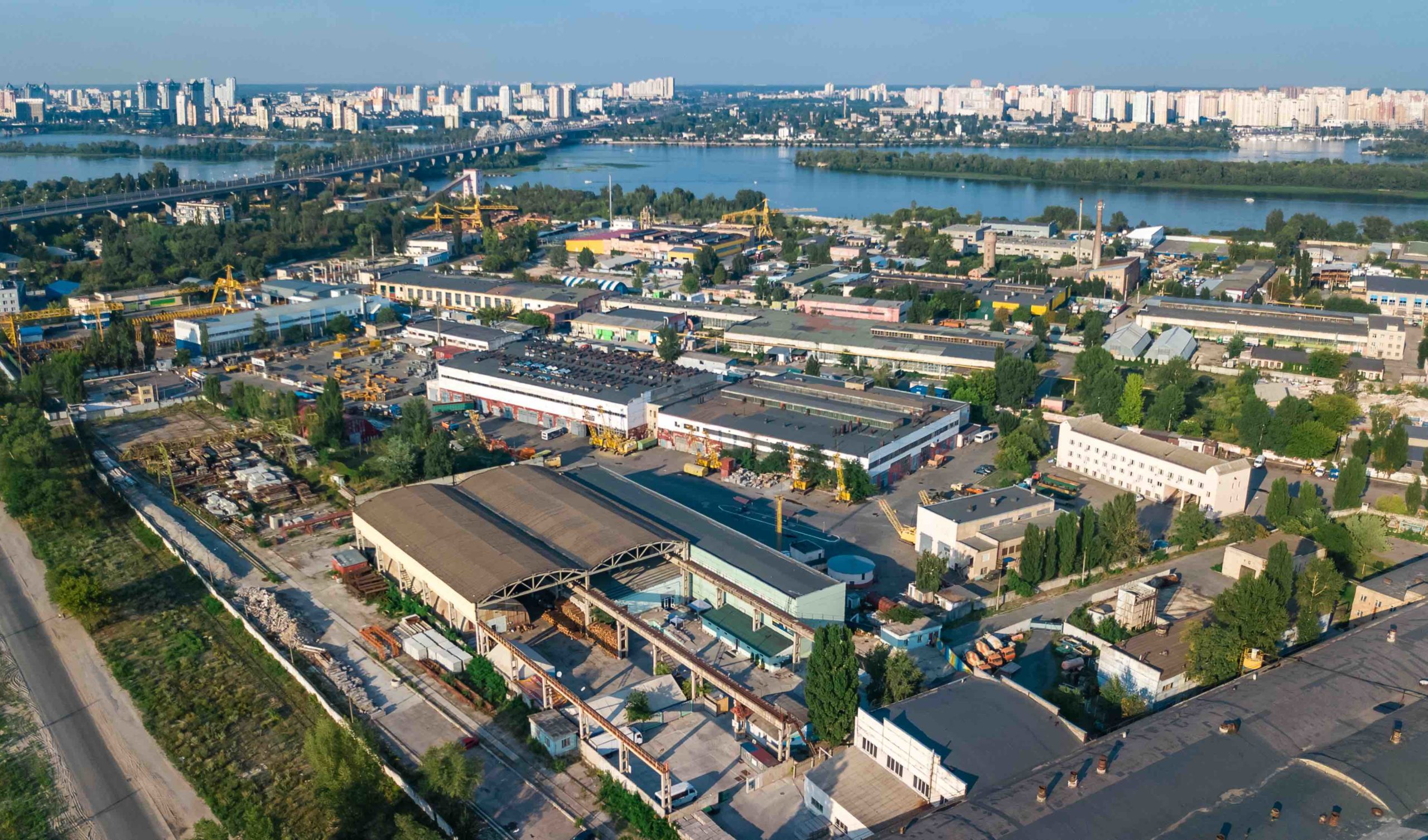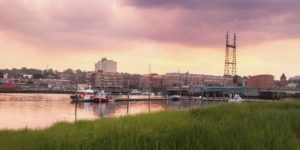Norwalk's New Business Development Center
Norwalk is recognized by families and businesses as one of the best places to live. Its population now exceeds 92,000 residents and it is the 6th largest city in Connecticut. It comes as no surprise that there is a lot of economic opportunity in Norwalk, and new businesses are starting up on a very regular basis. To aid Norwalk-based entrepreneurs and new business owners, the city has created a new Business Development Center. Read on to learn about this brand new facility and the services provided.
What is the Business Development Center?
[caption id="attachment_2140" align="alignleft" width="1024"]

Photo courtesy of Nancy Chapman[/caption]
The new business center, located at 3 Belden Avenue, was opened on November 3, 2022. It’s designed to be an all-inclusive resource that entrepreneurs and business owners can utilize throughout the life cycle of their businesses. This center was constructed using various sources of federal, state, and local funding. The American Rescue Plan Act gave the development center a vital infusion of funding to help complete it.
"We have the opportunity to have staff onsite to be able to assist with local and state grants, be able to build business plans, business models, offer professional development training, and be able to offer residents…and people in the region, as a whole, an opportunity to be able to take a dream that they may have stored for a very long time and actually make it a reality,” says Jessica Vonashek, Chief of Economic and Community Development for the City of Norwalk.
What Services does the Business Development Center Provide?
 Whether you are looking at starting a business or expanding one, the development center can help you. Services are extensive and cover a variety of topics:
Whether you are looking at starting a business or expanding one, the development center can help you. Services are extensive and cover a variety of topics:
- Financial Education
- Loan or Grant Application Assistance
- Technical Support for Local, State, or Federal Permitting
- Business Plan Development and Implementation
- Local and State Licensing Requirements
- Insurance for Your Business
- Market Research
Financing is another popular topic among entrepreneurs. Prospective business owners want to know how to infuse capital into their companies. The Business Development Center resources can walk you through traditional lending options, local programs, and Small Business Administration (SBA) programs.
All of these resources are available free of charge to ensure these resources are accessible to everyone.
The Business Development Center is a partnership with the City of Norwalk, the Greater Norwalk Hispanic Chamber of Commerce, The Greater Norwalk Chamber of Commerce, SCORE, the Small Business Development Council, the Norwalk Redevelopment Agency, the Women’s Business Development Council, and the NAACP. This partnership ensures that there is support for your business that is diverse and equitable.
Have More Questions?
With the help of private sector experts and higher-education resources, you can make your dream of starting your new business in Norwalk, CT a reality. If you want to learn more about Norwalk’s Business Development Center, contact us today or come visit us at the Norwalk Business Development Center Monday through Friday from 9 am to 4 pm. Norwalk Social Media App Gets Reboot
[repost from
The Hour]

A Norwalk company has lined up $25 million in backing, after more than 4.5 million people downloaded its app that shares ad revenue with social media “influencers” and artists who use it to post videos, photos and other content.
Display Social is a reboot of a social media startup called Tsu, which underwent a bankruptcy in 2016 only two years after its formation, even as celebrities like Rihanna, Justin Timberlake and William Shatner tried out the platform.
Initial Recommendations for Norwalk’s Industrial Zones
 “Industry” in the 21st century has come to have a different meaning than in the last century. For some, 2021-03-10 Steering Committee Meeting - Draft Recommendations (2)industrial zones may conjure up images of belching smoke stacks. But now, the modern industrial zone is something quite different. The manufacturing sector is seen more and more as including a variety of businesses that can be vital to creating vibrant local neighborhoods, offering a range of benefits from creative placemaking to employment opportunities.
“Industry” in the 21st century has come to have a different meaning than in the last century. For some, 2021-03-10 Steering Committee Meeting - Draft Recommendations (2)industrial zones may conjure up images of belching smoke stacks. But now, the modern industrial zone is something quite different. The manufacturing sector is seen more and more as including a variety of businesses that can be vital to creating vibrant local neighborhoods, offering a range of benefits from creative placemaking to employment opportunities.
The Changing Face of Industry
In many ways the new image of industry stems from the fact that manufacturing firms have changed radically over time. Across the United States, we are moving from a manufacturing sector dominated by mass producers with hundreds of employees to small and medium-sized businesses that are celebrated for keeping it local. Because of this, cities are redefining what industrial usage is as they take a look at their industrial zones.
Today, not all industrial uses are the same. They can be small-scale, less intensive uses such as small-batch manufacturing, woodworking, metalworking, machining, product design, printing, apparel and textiles, brewery and bakeries. Industrial uses can also include “light industries” including smaller-scale R&D, industrial services, distribution, building materials sale & storage and warehousing. Heavy industrial uses may include vehicle sale/service, storage/junkyards, asphalt and concrete plants, industrial processing, oil/petroleum/propane gas storage, solid waste transfer, recycling and composting.
Zones In Norwalk
Norwalk has three defined industrial zones: industrial 1, industrial 2 and restricted industrial. In addition, industrial uses are also allowed in certain other business zones. The kinds of activities that are allowed in these zones include manufacturing and processing, research and development, printing, warehousing, storage and wholesale distribution. These zones also allow for other uses that are not industrial, but accompany industrial uses such as offices and retail, artist workspaces, and even multifamily and single family housing.
Norwalk is setting out to reclassify and simplify its industrial zones. Recently, the committee studying this, presented the following recommendations:
- Simplify zoning into three new types of zones:
- Industrial
- Mixed Use Commercial/Industrial
- Mixed Use Residential/Commercial/Industrial
- In the Mixed Use Residential/Commercial/Industrial district, encourage ground floor boutique manufacturing and live/work spaces by allowing building height increases. For example, in neighborhoods such as the East Norwalk or Wall and West Avenue areas, the City could look to create incentives for light industry such as allowing property owners to maintain and grow businesses while allowing for residential spaces above them.
- In the Mixed Use Commercial/Industrial Zones, allow for hybrid building types such as in South Norwalk along Martin Luther King Jr. Boulevard, Wilson and Woodward Avenues or North Norwalk along Perry Avenue.
- Distinguish the difference between the types and intensity of contractor yards from each other and from other industrial uses and identify more suitable locations and sites. Contractor yards pose problems when they are located along narrow residential streets or when they are near road networks and intersections which can cause conflict with their truck traffic. Currently, contractor yards are permitted by right in Norwalk in industrial zones in South and East Norwalk, but they are also permitted by special permit in other business zones in the City.
- Develop separate plans for the Norden site and the waterfront. The Norden Site is a large parcel (37 acres) but truck traffic now must move to and from the site through roads with no direct access to I-95. The committee’s recommendations are that this site should be considered for other suitable land uses such as industrial/commercial with passenger traffic only. Industrial uses around waterfront areas should promote access to the waterfront and be in compliance with and under the guidance of the City’s Harbor Management Plan.
The Industrial Zone Planning Committee will continue to refine its recommendations as it moves ahead, following up with the City’s industrial businesses, and with input and feedback from the public via public outreach sessions being scheduled for late April, 2021.
Norwalk Recognized for Sustainability Initiatives
 The City of Norwalk recently achieved a bronze certification from the group Sustainable CT in recognition of the community’s sustainability accomplishments. Sustainable CT is a statewide initiative that encourages and supports communities in becoming more resilient, inclusive and efficient. In the fall of 2020, seventeen municipalities qualified for certification, meeting the high standards in a broad range of sustainability accomplishments.
The City of Norwalk recently achieved a bronze certification from the group Sustainable CT in recognition of the community’s sustainability accomplishments. Sustainable CT is a statewide initiative that encourages and supports communities in becoming more resilient, inclusive and efficient. In the fall of 2020, seventeen municipalities qualified for certification, meeting the high standards in a broad range of sustainability accomplishments.
Norwalk’s Sustainability Actions
Norwalk demonstrated significant achievements in actions in sustainable impact areas. A few of those initiatives are outlined below.
Resources and Support to Local Businesses
The city underwent a substantial marketing and tourism program to promote South Norwalk. The Business and Economic Development Department created a Small Business & Main Street Program that includes a storefront improvement program, public art initiative and compacting trash bins that all improve the area visually. In addition, the city conducted a number of business roundtables with local business owners to open and improve communication between City Hall and businesses in Norwalk. Focuses of the initial roundtables included available programs for small businesses and planned improvements for various neighborhoods.
Stewarding Land and Natural Resources
Norwalk created a Watershed Management Plan for three different area watersheds including the Norwalk River, Saugatuck River and Five Mile River. These plans included the participation of a large group of watershed stakeholders. The Watershed Management Plans had a big impact on the adoption of the 2017 Norwalk Drainage Manual and recent City planning efforts. For example, the East Norwalk Transit-Oriented Development Plan places an emphasis on decreasing the amount of impervious surface in the City, which helps to prevent pollutants from running off into the Norwalk and Saugatuck River Watersheds. Actions listed in the Saugatuck River Watershed Plan include water quality monitoring, reducing impervious surfaces, restoring riparian buffers and land protection.
In addition, Norwalk helped to fund a 2019 Fairfield County River Report by Harbor Watch, a research and education program located in Westport. The report assessed bacteria levels in 16 river watersheds, including Farm Creek, Silvermine River, Norwalk River and Saugatuck River.
The 2019-2029 Citywide Plan and the business section of the zoning regulations contain green infrastructure incentives for development such as green roofs, rain gardens, solar panels, as well as stormwater management and low impact development goals and actions.
Sustainability and Resiliency Planning
Norwalk’s Citywide Plan heavily focuses on both smart growth and sustainable land development through preserving existing environmental resources. As part of this emphasis, the City will be drafting a climate action plan for Norwalk in the future. The Planning and Zoning Office has already adjusted its staff to include a Land Use Planner to work on environmental issues facing the city and the department has taken many steps towards sustainability through regulation changes. The City is also working on a regional level as a part of Western Connecticut Council of Governments COG's Regional Hazard Mitigation Plan.
Recycling Additional Materials and Composting Organics
A Food Waste Prevention and Food Scraps Recovery Campaign was developed providing residential food scrap collection at the Norwalk Transfer Station and the Rowayton Community Center. Since the campaign began in July 2020, almost 20,000lbs in food scraps have been composted.
Growing Sustainable and Affordable Housing Options
The City of Norwalk has increased the percentage of affordable units in the city from 11.83% in 2014 to 12.75% in 2018, and most currently to 13.15% in 2019. Norwalk requires that any development over 20 units in most areas and 12 units in downtown areas include workforce housing units, and is looking at lowering that threshold to be any development over 10 units This will allow the City to further expand the amount of newly constructed affordable units in Norwalk which are in high demand. The 2019-2029 Citywide Plan continues this push for affordable housing with goals to provide more diverse housing options and encourage mixed-income developments in the City.
Support of the Arts and Creative Culture
Norwalk has a very active Arts Commission that promotes arts and culture throughout Norwalk via activities, a website and an art inventory. In 2017, the Arts Commission appointed Norwalk's first Poet Laureate, Laurel S. Peterson, and the current Poet Laureate is Bill P. Hayden. A recent art project for Martin Luther K Boulevard has been recommended for full funding this fiscal year by the Mayor.
What is Sustainability Certification?
To be eligible for sustainability certification, communities must have accomplished significant goals in nine sustainability impact areas, including community building, thriving local economies and vibrant arts and culture, clean transportation and diverse housing. In addition, certified municipalities must have addressed issues of belonging, equity, diversity and inclusion when implementing sustainability actions.
Collectively, sixty-one municipalities, over 36% of the state’s communities, have earned a Sustainable CT certification. Certification lasts for three years, with submissions rigorously evaluated by independent experts and other Sustainable CT partners.
About Sustainable CT
Sustainable CT, managed under the leadership of the Institute for Sustainable Energy at Eastern Connecticut State University, includes actions that help towns and cities build community connection, social equity, and long-term resilience.
Sustainable CT is independently funded, with strong support from its three founding funders: the Emily Hall Tremaine Foundation, the Common Sense Fund, and the Smart Seed Fund. Additional support is provided by: the Community Foundation of Eastern Connecticut, Connecticut Community Foundation, Fairfield County Community Foundation, Main Street Community Foundation, and other sponsors.
For more information, visit sustainablect.org
 Photo courtesy of Nancy Chapman[/caption]
The new business center, located at 3 Belden Avenue, was opened on November 3, 2022. It’s designed to be an all-inclusive resource that entrepreneurs and business owners can utilize throughout the life cycle of their businesses. This center was constructed using various sources of federal, state, and local funding. The American Rescue Plan Act gave the development center a vital infusion of funding to help complete it.
"We have the opportunity to have staff onsite to be able to assist with local and state grants, be able to build business plans, business models, offer professional development training, and be able to offer residents…and people in the region, as a whole, an opportunity to be able to take a dream that they may have stored for a very long time and actually make it a reality,” says Jessica Vonashek, Chief of Economic and Community Development for the City of Norwalk.
Photo courtesy of Nancy Chapman[/caption]
The new business center, located at 3 Belden Avenue, was opened on November 3, 2022. It’s designed to be an all-inclusive resource that entrepreneurs and business owners can utilize throughout the life cycle of their businesses. This center was constructed using various sources of federal, state, and local funding. The American Rescue Plan Act gave the development center a vital infusion of funding to help complete it.
"We have the opportunity to have staff onsite to be able to assist with local and state grants, be able to build business plans, business models, offer professional development training, and be able to offer residents…and people in the region, as a whole, an opportunity to be able to take a dream that they may have stored for a very long time and actually make it a reality,” says Jessica Vonashek, Chief of Economic and Community Development for the City of Norwalk.
 Whether you are looking at starting a business or expanding one, the development center can help you. Services are extensive and cover a variety of topics:
Whether you are looking at starting a business or expanding one, the development center can help you. Services are extensive and cover a variety of topics:


 A Norwalk company has lined up $25 million in backing, after more than 4.5 million people downloaded its app that shares ad revenue with social media “influencers” and artists who use it to post videos, photos and other content.
Display Social is a reboot of a social media startup called Tsu, which underwent a bankruptcy in 2016 only two years after its formation, even as celebrities like Rihanna, Justin Timberlake and William Shatner tried out the platform.
A Norwalk company has lined up $25 million in backing, after more than 4.5 million people downloaded its app that shares ad revenue with social media “influencers” and artists who use it to post videos, photos and other content.
Display Social is a reboot of a social media startup called Tsu, which underwent a bankruptcy in 2016 only two years after its formation, even as celebrities like Rihanna, Justin Timberlake and William Shatner tried out the platform.

 The City of Norwalk recently achieved a bronze certification from the group
The City of Norwalk recently achieved a bronze certification from the group 

